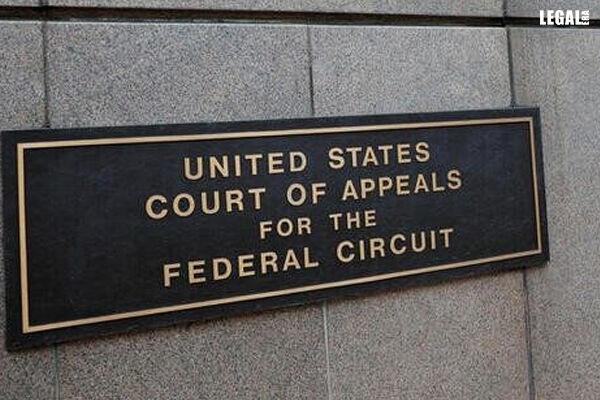
US Court of Appeals transfers case; District Court ruled it had no jurisdiction
The matter has now been referred to the Court of Appeals for the Second Circuit
The U.S. Court of Appeals for the Federal Circuit (CAFC) has transferred an appeal over an award issued in an international arbitration and confirmed by a U.S. District Court, which ruled that the CAFC did not have jurisdiction over the case.
In an unprecedented ruling, Judge Taranto transferred the appeal of Acorda Therapeutics Inc to the U.S. Court of Appeals for the Second Circuit, stating that the firm’s petition to modify an arbitral award of $16,554,267 was not within its jurisdiction.
Acorda had initiated an international arbitration against Alkermes PLC seeking a judgment that it no longer had to pay royalty payments to Alkermes after the expiration of its patent covering the active ingredient in Acorda’s multiple sclerosis drug.
Acorda had been paying the royalty, but protested against it in July 2020. Thus, the arbitral tribunal awarded Acorda for the payments made under formal protest but not the payments made between 2018 and 2020.
Thereafter, Acorda petitioned the District Court for the Southern District of New York to confirm the award and modify the judgment’s denial of recoupment of the 2018–2020 payments. It suggested this on the ground that “the tribunal acted in ‘manifest disregard of federal patent law and a non-patent-law principle of law.”
The district court rejected the modification request but affirmed the award.
On an appeal, the CAFC explained it had jurisdiction over “appeals from a final decision of a district court in any civil action arising under, or in any civil action in which a party has asserted a compulsory counterclaim arising under, any Act of Congress relating to patents.”
However, it was undisputed that there was no patent law cause of action, and that Acorda’s claim would have to meet the criteria of a “small, second category of cases nonetheless arising under federal patent law.”
For a case to come under that category, it must involve a patent law issue that was: “(1) necessarily raised, (2) actually disputed, (3) substantial, and (4) capable of resolution in federal court without disrupting the federal-state balance approved by Congress.”
The CAFC held that the petition failed the first step of the Gunn v. Minton, 568 U.S. 251, 257-58 (2013) decision.
The Federal Court requested confirmation of all, but the denial of recoupment did not ‘necessarily raise’ a patent law issue. Parties to an arbitration seeking confirmation of an award are not required under the law “to plead and prove the correctness of the rulings in the arbitral award.”
The court added, “It was therefore not a necessary part of Acorda’s petition for confirmation to establish, or obtain a judicial determination on any proposition of federal patent law.”
Similarly, Acorda’s request for modification of the denial of recoupment for the 2018-2020 payments failed to ‘necessarily raise’ a patent law issue because the request “took as its premise the tribunal’s own determination of unenforceability, which Acorda sought to be confirmed without needing to have the court evaluate its correctness.”
The CAFC further explained that Acorda presented two grounds for establishing the ‘manifest error’, but only one rested on federal patent law. The court held, “Acorda presented a way for the District Court to rule in its favor on the requested recoupment remedy without agreeing with Acorda’s assertion that federal patent law entitled it to that remedy. In that circumstance, the asserted patent-law issue was not ‘necessarily raised.’”
The case raised questions about how the court should assess other facts related to the ‘substantial’ point of the Gunn vs Minton test, and that it was not applicable in the present case.